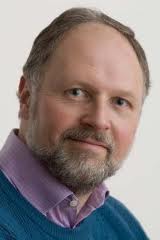Printed in the Summer 2014 issue of Quest magazine.
Citation: Smoley, Richard. "From the Editor's Desk" Quest 102. 3 (Summer 2014): pg. 83.
 Today, when money and spirituality are mentioned together, something called the Law of Attraction often comes up. The idea behind it is that thought in and of itself produces results in the physical world. Moreover, "like attracts like." That is, if you're spending a lot of time brooding about financial worries, those very thoughts are going to bring problems to you. Conversely, if you think thoughts of wealth and abundance, the dollars will be banging on your door.
Today, when money and spirituality are mentioned together, something called the Law of Attraction often comes up. The idea behind it is that thought in and of itself produces results in the physical world. Moreover, "like attracts like." That is, if you're spending a lot of time brooding about financial worries, those very thoughts are going to bring problems to you. Conversely, if you think thoughts of wealth and abundance, the dollars will be banging on your door.
The idea, epitomized in Napoleon Hill's 1938 best-seller Think and Grow Rich, was a mainstay of the New Thought movement throughout the twentieth century. Its current popularity is due to the teachings of a nonphysical entity (or rather, group of entities) named Abraham, channeled by Esther Hicks. Books by Hicks and her husband, Jerry, have hit the best-seller lists any number of times over the past decade. The idea grew still more popular with Rhonda Byrne's 2006 film (and later book), The Secret, another best-seller.
The Law of Attraction thus starts to sound like a pyramid scheme. The best way to manifest abundance is to write about manifesting abundance.
Is there more to it than that?
I have my doubts. First of all, there is nothing self-evidently true about the claim that "like attracts like." Often it seems to be the other way around: opposites attract, whether we are talking about male and female or the positive and negative ends of a magnet. It would seem rather to be the case that "like repels like."
Nevertheless, it would be hard to say flat out that the Law of Attraction does not work, since many say they have had success with it. But I think something else is going on.
One form of occult magic involves this procedure: you form a clear, sharp, stable mental picture of what you desire. Once this is fixed, you raise "power," a subtle force that is not well understood even though everyone experiences it. This power is what you sense in a room just before an argument is about to erupt. It can also be produced by strong sexual attraction. Most of the time it is raised unconsciously and discharged just as unconsciously. But an occultist who knows how can infuse this power into the mental image and (perhaps) make it manifest on the physical plane.
I suspect that many of those who are working with the Law of Attraction are doing something of this kind. From my own experience, I would say that it is possible, even comparatively easy, to achieve results with this method.
If so, why doesn't everybody do it? To begin with, most people don't know about it. Many of those who do, including most reputable esotericists, refuse to use it. But they don't always explain why, except to say that it is not permitted to use occult powers for personal gain.
There is another reason, I believe, that this kind of magic has been frowned upon: while you can get results with this practice, it is almost impossible to avoid unintended and unwanted side-effects.
Years ago a friend of mine told me this story. She had had a boyfriend who was starting a business, and he needed ten thousand dollars. So she did some kind of magical ritual to get the money for him.
Around this time she finished medical school and was moving out of her dorm. She had loaded all of her belongings into her car. The car was broken into and everything was stolen. The insurance settlement came to ten thousand dollars.
If we are being honest with ourselves, there are probably few on the spiritual path who have not tried something like this once or twice, with similar results. Most people get their fingers burned and learn their lesson. Only those who are very stupid or very evil, or both, go any further.
On the Internet you will see references that trace the Law of Attraction to H.P. Blavatsky and Annie Besant, but as far as I can tell, they didn't use the term that way (for them, it was usually a kind of rough approximation of the law of gravity). Nevertheless, the Theosophical literature does explore the power of the mind, and Besant's Thought Power, first published in 1903, remains a useful and impressive work.
For Besant, thoughts are creative, although not quite in the way that the Law of Attraction would have us believe. She says little, if anything, about using thoughts to gain a million dollars and all that it will buy, except to say that such thoughts bind the consciousness to lower planes of manifestation.
Instead Besant emphasizes strengthening the mental body by the conscious use of thought and removing negative patterns from the mind by concentrating on positive and uplifting thoughts. Each individual, she says, "fixes the normal vibration-rate of his mind. Thoughts which do not harmonise with that rate will be flung aside when they touch the mind. If a man thinks truth, a lie cannot make a lodgement in his mind; if he thinks love, hate cannot disturb him; if he thinks wisdom, ignorance cannot paralyse him."
It is true that we can change the world with thought; it is done all the time. But it may be more important, and in the end more satisfying, to change ourselves.
Richard Smoley

